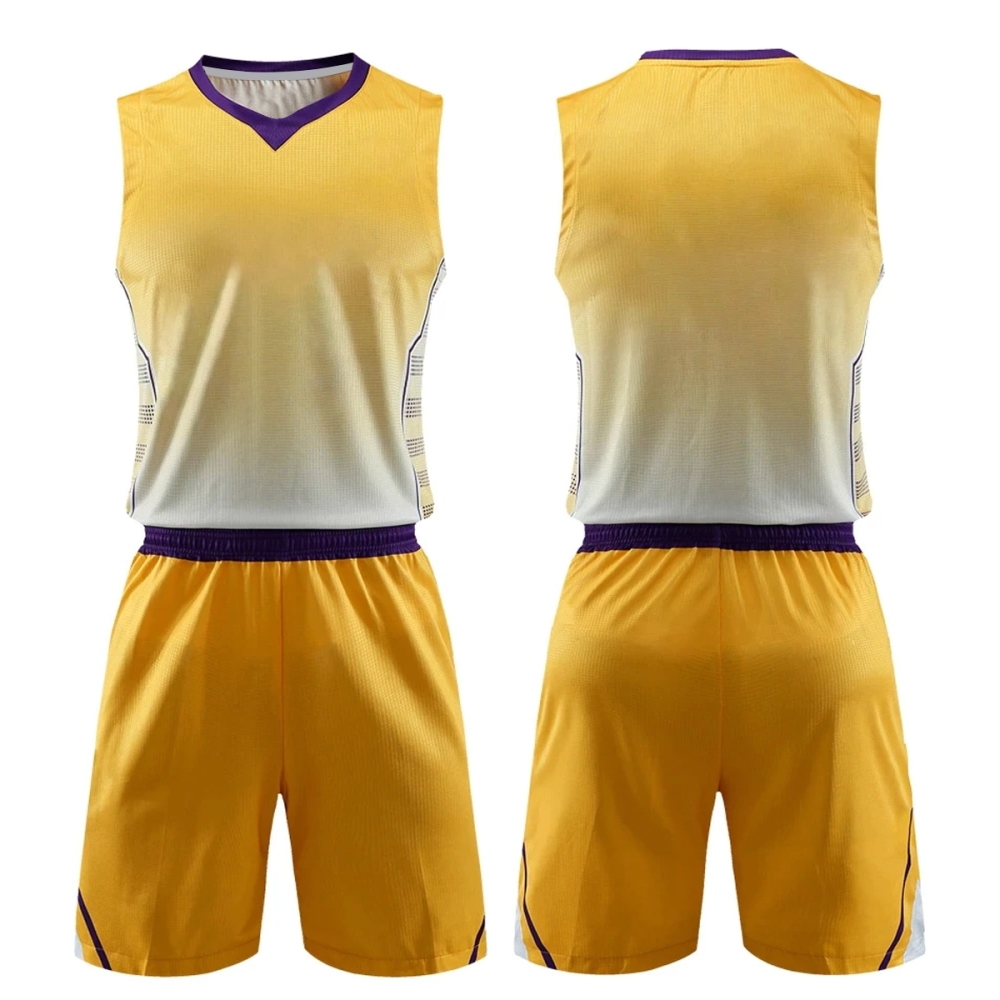A basketball uniform is designed to provide comfort, flexibility, and a professional appearance for players, enhancing their performance on the court. Here’s a detailed description of a basketball uniform:
Material:
- Fabric: Typically made from lightweight, breathable materials like polyester or polyester blends. Modern fabrics often include moisture-wicking technology to keep players cool and dry.
Components:
Jersey:
- Style: Sleeveless tank top.
- Design: Features the team name, logo, and player number on the front. Player’s last name and number are usually printed on the back.
- Fit: Athletic fit to allow maximum range of motion and minimize resistance.
- Details: May include mesh panels for added ventilation and armholes designed to reduce chafing.
Shorts:
- Style: Loose-fitting shorts that typically reach just above the knee.
- Design: Matches the jersey in color and style, often with team logo and sometimes player number.
- Fit: Elastic waistband with a drawstring for a secure and adjustable fit.
- Details: May include pockets, though this is less common, and side panels or piping to complement the overall design.
Color and Patterns:
- Team Colors: Each uniform is designed in the team’s colors, which helps to create a cohesive team identity on the court.
- Home and Away Uniforms: Teams usually have different sets of uniforms for home and away games, often with contrasting colors. Some teams also have alternate or special edition uniforms.
- Patterns: Uniforms may include various patterns such as stripes, gradients, or camo prints to add visual interest and uniqueness.
Additional Gear:
- Shoes: High-performance basketball shoes designed to provide support, cushioning, and traction. Often customized to match the team’s colors.
- Socks: Athletic socks that provide cushioning and support, usually crew or calf-length.
- Headbands and Wristbands: Optional accessories for sweat management and style.
- Protective Gear: Some players may wear knee or elbow pads, compression sleeves, or ankle braces for additional support and injury prevention.
Usage:
- Games: Worn during official games to represent the team.
- Practices: Practice uniforms or training gear may be similar but less formal and without detailed logos or player names.
Fashion:
- Customization: Uniforms are customized with the player’s name and number, and sometimes personal or team achievements are noted.
- Merchandising: Replica jerseys are popular among fans and are sold as part of team merchandise, often including different variations for home, away, and special occasions.
Maintenance:
- Care: Requires regular washing and maintenance to keep colors vibrant and fabrics in good condition. Typically machine washable but should be washed in cold water and air-dried to maintain integrity.
- Durability: Designed to withstand the physical demands of basketball, including frequent movements, jumps, and physical contact.
Standards:
- Regulations: Must meet specific guidelines set by basketball leagues and associations, including size, placement of logos and numbers, and overall design to ensure uniformity and fairness.




